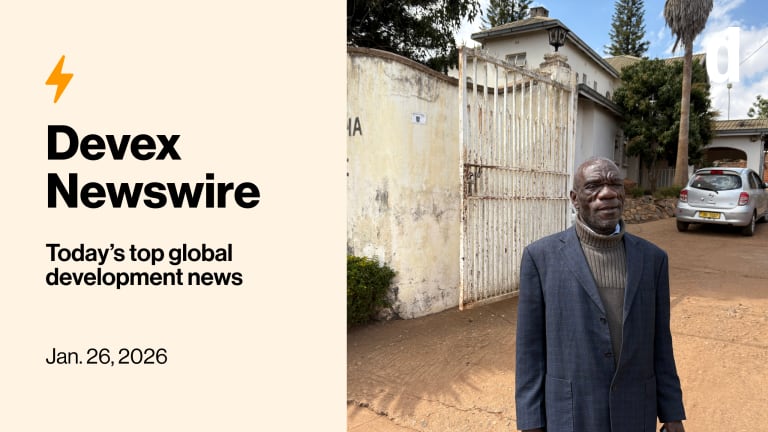
Two months after its official launch, U.S. officials tasked with creating the second Quadrennial Diplomacy and Development Review — a strategic review and vision for the use of U.S. civilian power abroad — are “wrestling” with how to incorporate performance metrics into their goals and recommendations.
“There has to be a plan for implementation that we can get started on right away, but I don’t think we want to limit ourselves to accomplishing any of those goals over the four years,” Heather Higginbottom, deputy secretary of state for management and resources, said in response to a question from Devex during an event hosted by the American Security Project on Tuesday in Washington, D.C.
“I think we’re still wrestling with that to be honest,” she added. “I think that’s a really good question. I do think we should be held accountable, but I think we need to figure out a way to do that that conveys some of the complexities of doing these things.”
The QDDR process — the second such review since former U.S. Secretary of State Hilary Clinton set the precedent four years ago — began formally with an announcement by Secretary of State John Kerry in April, but Higginbottom’s team has been conducting research for over a year, she said.
In February, Kerry appointed former Virginia Congressman Tom Perriello as special representative for the quadrennial diplomacy and development review. Since then, Perriello and the QDDR team have held “hundreds” of town halls, meetings, video teleconferences, and met with over 100 “thought leaders.”
“What are the problems we need to fix? What are the successes we need to build on? What are the trends we need to get ahead of? That’s what we’re asking,” Perriello said on Tuesday.
“Given the reality that State and USAID don’t turn on a dime, part of the idea is if we need to be somewhere twenty years from now, what can we do in the next two to four years to begin the process of getting there?
The second QDDR — which some are calling QDDR 2.0 — will not try to be “everything to everyone,” Higginbottom explained. The first review was criticized in some circles for overreaching and for failing to incorporate a clear enough implementation plan, so QDDR 2.0, according to the officials in charge of coordinating it, will focus on a “few big challenges and opportunities.”
Higginbottom affirmed that the team is not yet ruling anything out in terms of what will or will not be included, but also hinted that some persistent themes have emerged from the discussions so far: how the U.S. government can and should facilitate innovation in development and diplomacy, opportunities and challenges presented by rising economies in Africa and Asia, and how to advance U.S. environmental and economic diplomacy.
Both officials added that just because an idea does not cross what Perriello called the “magic line” of inclusion into the QDDR does not mean the administration will not act on it.
The discovery stage will extend through the summer with the final report expected to be released before the end of the year, Perriello added. Organizations and individuals with suggestions for what should be included — or not — in the QDDR 2.0 recommendations can email their suggestions to Perriello at perriellot@state.gov or to his team at QDDRideas@state.gov.
How do you think QDDR 2.0 should incorporate performance metrics into their goals and recommendations? Please let us know by sending an email to news@devex.com or leaving a comment below.
Read more on U.S. aid reform online, and subscribe to The Development Newswire to receive top international development headlines from the world’s leading donors, news sources and opinion leaders — emailed to you FREE every business day.








